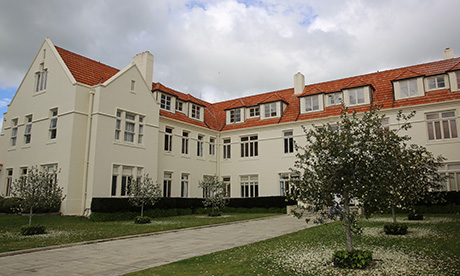Apologies from the Catholic Church followed the final submissions into historical abuse at Christchurch’s Marylands school.
More than 30 witnesses gave evidence to the Commission of Inquiry into Abuse in Care – many survivors, some experts and some senior members of the Catholic Church.
In her closing statement, lawyer Sally McKechnie, who represented New Zealand’s Catholic bishops and leaders at the hearing, repeated their apologies for what happened at the school.
“This harm should never have happened and it is a great shame and deep regret to the Church that it has”.
She went on to acknowledge the courage of survivors who had shared their experiences with the inquiry.
“The brothers and the Church have heard their pain, and they have heard the anger, and frustrations.
“That Marylands was a place of sexual, physical and psychological abuse was horrific and the Church apologises to you, survivors, to your families, whānau and to the hundreds of co-workers who worked in these institutions”.
The Church does not want to question the evidence of survivors, McKechnie stressed.
Rather, it wants to “learn how the church can ensure that proper redress and healing takes place for survivors of abuse”.
Doing so, however, won’t be without challenges, she said.
The fact some survivors want a close and supportive relationship with the church while others do not want any at all makes it ‘very challenging’ to implement a fair and effective model of redress, she said.
McKechnie said a further challenge was to determine how to provide effective financial redress, as some survivors said they had little if any of the money they received as redress payment left.
Payments had to be delivered in a way that gave survivors the freedom to choose how they wanted to spend the money, while balancing that with the need to provide them long-term support, she explained.
While the Church has since implemented additional processes around abuse and safeguarding, ‘there is clearly still work to do’ she said.
Earliler, Catholic Archbishop Paul Martin offered a heartfelt apology to the Commission earlier last week in his role as the current Apostolic Administrator of the Diocese of Christchurch.
“I want to apologise and I want to convey the deep sadness that I feel and I know our Catholic people do as well, because this was an institution that was supported by the community – and to know what we thought we were supporting was not actually doing what it should have been doing,” he said.
“It is a cause of deep shame and sorrow”.
Martin said the Church wanted to be better.
“We don’t have these institutions anymore. We do take it very seriously and do want to try to be better now and into the future”.
Martin, the current Apostolic Administrator of the Diocese of Christchurch, accepts that survivors want the church to take responsibility for historical abuse cases and not just leave it to the particular order involved.
Source
